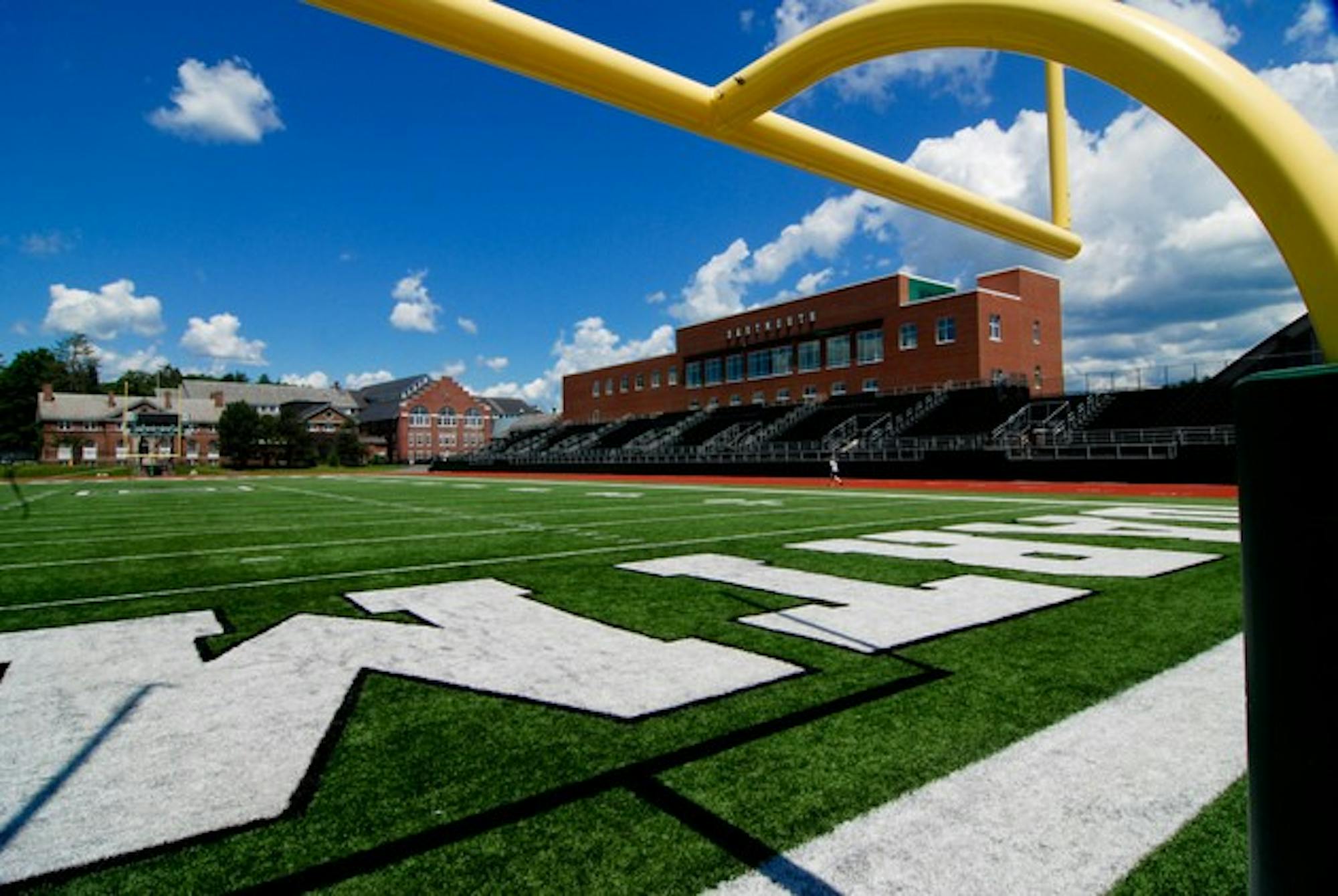This article is featured in the 2021 Freshman special issue.
This fall, Dartmouth athletes will be returning to something resembling normal competition for the first time since campus originally shut down in March 2020. The status of spectatorship in the fall is still unknown, and will be dependent on College guidelines.
Women’s soccer head coach Ron Rainey said that he is not sure the extent to which the upcoming season will mirror pre-COVID-19 play, but added that his players are looking forward to playing competitive games again, no matter what form they may take.
“I do think there’ll be times where there’ll be protocols, and whether it’s on a soccer field or in a classroom, I think there’s going to be masks involved for the next few months,” Rainey said. “But it’s going to be great to be out training and it’s going to be great to get back to a normal competition season.”
Tennison Brady-Steen ’23, a member of the women’s track and field team, said it is “not a big deal” to her if the team has to wear masks during training this term. She noted that most of their practices are outdoors and their competition season does not begin until the winter. Members of the team, whether on or off campus, were sent training and lift programs to follow over the summer. This is meant to help smooth the transition to a full practice schedule this fall and make sure it is “not a huge jump” for the athletes, Brady-Steen said.
Many fall athletes preparing for a return to competition — particularly members of the Class of 2023 — have not been on campus this year until summer, let alone practicing and competing with their teammates as they are accustomed to.
“Last fall, I was here, and we were allowed to practice, but it was super strict,” said Brady-Steen. “We could only practice an hour a day, and you can’t really get anything done. I’m excited to be able to practice with the whole team. The fall is our heavy-duty season, so we usually do 3-4 hours a day — we don't have any meets — and [the season] should be completely normal, as far as I know.”
Football outside linebacker Zack Milko ’23 expressed his excitement to get back to the locker room, which the football team has not had regular access to this summer.
“It’ll also be great to have in-person meetings again after watching film by screen share for the past fifteen months,” Milko said. “But the biggest thing has to be putting pads back on and seeing every single one of my teammates again. I couldn’t be more excited.”
Returning to competition after such a long layoff will not come without its difficulties, though. Chief among these is the adjustment period for younger players — freshmen, sophomores and even spring season juniors — who haven’t had a chance to compete at the collegiate level yet but nonetheless form the majority of many teams’ rosters.
“We’re going to be playing so many guys who have never seen the field before, but are now upperclassmen,” Milko said. “It’ll almost be like having two freshman classes because this will be the sophomores’ first season as well.”
Milko expressed his hope that the football team’s collective relative inexperience will be mitigated by the return of fifth year players — who have an extra year of Ivy League eligibility — because “there are a lot of leaders among them.”
Some teams face additional challenges created by the pandemic beyond losing a year of practices. In July 2020, several sports teams — men’s lightweight rowing, men’s and women’s golf and men and women’s swim and dive — were eliminated by Dartmouth Athletics, only to be reinstated this past January.
Lightweight rower Nathaniel Kramer ’23 said that losing a year of recruiting will be a hurdle for the team this fall, but that the extra year of eligibility offered to older rowers will aid the situation. Kramer cited his teammates’ commitment to and passion for rowing — evidenced by his peers that continued to compete outside of school, including some who medaled at the Under-23 World Rowing Championships in the Czech Republic this July — as factors that will help them this season.
“There were probably some of us — myself, at the least — who cut back on the amount of volume [of practice] we would have been doing if we were training, but that doesn’t mean we completely dropped the sport,” Kramer said. “A lot of us will be competing in a fifth year, so we’ll hopefully have recruiting back to normal by the time most of [the ’22s and ’23s] graduate.”
Despite potential difficulties, most athletes expressed excitement at returning to regular competition and getting to spend time with their teammates again.
“These guys are really some of the best people on campus and I’m so grateful to be a part of this team,” Kramer said. “There’s really no experience better than going from a hard practice to Foco with the guys.”
Brady-Steen noted her excitement for the return to in-person practices with her entire team, as well as the chance to get to know sophomores better along with the incoming freshmen.
“It's gonna be nice to get back into a routine, and we’ll get to teach both the ’24s and ’25s about all these traditions that they haven't really gotten to experience,” she said. “That’s what I’m looking forward to most, that community-building aspect that we haven’t had for the past year.”




